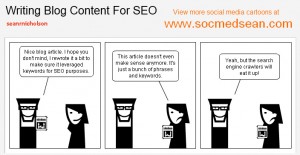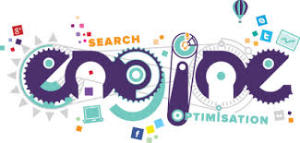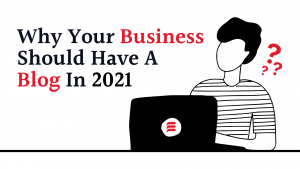Artificial intelligence technology is transforming digital marketing. Algorithms have the capacity to process and analyze immense quantities of data that the human mind is incapable of. And they can do this rapidly while producing highly accurate results.
Today, businesses rely on AI to not only gather, process, and produce results from data, but also rely on it to make important decisions.
Generally speaking, we can easily rely on AI to handle data and provide solutions, including making marketing decisions. However, using AI is not fool-proof, and before you invest in it or rely on AI tools completely, it’s a good idea to become familiar with its weaknesses.
In this post, we’re going to explore some of the pitfalls of AI in marketing. Your marketing activities impact your brand image and the success of your business. It’s vital to monitor the mechanisms that are making marketing decisions.
Let’s dive right into how AI can be problematic and why you should understand and monitor its usage.
No Single Solution Fits All Needs
Every business’s marketing needs are unique, which means that finding the perfect AI tool to manage your specific marketing activities is challenging.
There are several powerful AI platforms for optimizing your ad campaigns, for content personalization, and more. However, finding a comprehensive platform that’s also affordable for small businesses is something to be expected in the future. This means that you need to balance finding AI marketing tools that are absolutely essential and using it in conjunction with your current marketing tools.
AI Requires Supervision
There are spectacular examples of AI tools and bots that have produced inappropriate content on social media and other platforms. Microsoft’s Tay, a chatbot launched on Twitter is a good example. The AI bot ‘learned’ to communicate from its interactions with the public. It’s communication devolved from coherent sentences to spouting highly inflammatory statements.
It’s clear that AI needs supervision especially when it comes to public communication and building your brand image.
There are also other examples of AI discriminating against minorities and women, such as in the case of Amazon’s AI recruitment tool. It’s a warning for businesses to closely monitor AI’s outcomes.
Algorithms are Literal
The problem with algorithms, as indicated by the previous point, is that they are literal. They do exactly what they are told to do. That may seem ideal, but it means that an algorithm will not take any other facts or context into consideration. What may seem obvious to humans will not factor into an algorithm’s functioning.
Algorithms produce results based on inputs that humans provide. This means that biases and prejudices automatically appear as is indicated from the example of Amazon’s AI recruiting failure.
AI does not understand ethics or moral issues and will simply produce results according to the inputs and instructions provided. This showcases that your business needs to continuously test their AI tools and monitor them and make tweaks to provide desirable results.
Lack of Creativity
In marketing, creativity is an essential feature that drives marketing efforts. But creativity is characterized by emotional and out-of-the-box thinking.
AI can help content marketing by analyzing data and informing you about the best content formats for each social media platform. Or it can determine the most effective colors, fonts, keywords, and more from A/B testing results. These inputs can go a long way to ensure that humans’ creative efforts lead to desired outcomes such as higher conversions and engagement rates.
On its own, AI is not a great tool for creative concepts and content. But put it together with human minds and you’ll see the best results yet for your content marketing strategies.
They are Black Boxes
One of the most important insights a business can get from carrying out marketing campaign experiments is to understand what works and why.
When you understand why your audience responds well to a specific campaign and not to another, you’ll be able to apply your insights to future campaigns. This can lead to exponential growth and business success.
However, when it comes to AI, an algorithm will process large data sets, follow instructions, and generate the desired outcomes. But they will not tell you why or how they came to the conclusions they did. This makes it difficult to replicate results or to use the same methodology in other marketing campaigns.
You can make AI explainable by reducing the data input – which leads to less accurate results – or you can increase the input but to get accurate and effective outcomes without understanding why an AI tool is making the choices it does.
This may not seem like a serious issue, but when a serious negative event takes place, it’s not acceptable to say that you don’t know why a tool has made a wrong decision. Using AI comes with necessary sacrifices including not understanding the mechanisms that lead to positive or negative outcomes.
Monitor Your AI Marketing Tools
AI can be very powerful in your business: it can drive personalization, boost conversions, and carry out important advertising and marketing decisions.
However, It’s not yet reached a stage where you can afford to let it operate unsupervised. Small businesses will be hard hit if an AI tool makes an ethically problematic decision such as displaying inappropriate messages.
You need to constantly supervise and tweak your AI tools as they manage your marketing campaigns. AI will transform your business, and now that you know of its potential pitfalls, you’ll be well placed to manage them effectively.
Business & Finance Articles on Business 2 Community
(50)








